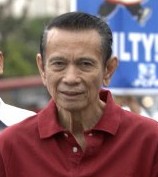Groups seek Supreme Court help vs political dynasties
At least eight senatorial candidates are related to incumbent officials. In the House of Representatives and in local governments, political families are fielding wives, husbands and children—an age-old practice much criticized but still prevalent in every election cycle.
Hoping to put a stop to this family-type enterprise in the country’s elections, a multisectoral group led by former Vice President Teofisto Guingona, former party-list House member Satur Ocampo and civil society leaders plan to seek a Supreme Court opinion on the rise of political dynasties.
The antipolitical dynasty movement, as it is informally called, will file a petition before the high tribunal next week to seek a clarification on the constitutional provision prohibiting dynasties in the political system.
“We agreed that we will file a petition with the Supreme Court for them (justices) to clarify… because they are bound to interpret what is in the Constitution—Article 2, Section 26, the prohibition of political dynasties,” said Dante Jimenez, the founding chairman of the Volunteers Against Crime and Corruption (VACC).
He said the group was moved to act “because [you] can’t count on Congress, they don’t want to pass an enabling law”.
Article continues after this advertisementArticle 2, Section 26 of the Constitution states that “The State shall guarantee equal access to opportunities for public service and prohibit political dynasties as may be defined by law.”
Article continues after this advertisementDespite the 25-year-old constitutional provision, however, Congress has yet to enact a law to enforce it.
Jimenez said Guingona proposed such a bill in 1987. While the bill but received a majority vote in Senate, it was defeated in the House.
Bobby Tuazon, a political analyst from the Center for People Empowerment, said the past few years have seen a rise in political families. In the current Senate, up to 20 senators belong to political families while in the House, the number could be from 180 to 200.
“For the past 100 years, from the Philippine Assembly to Congress, there has been no significant national legislation responsive to the social and economic rights of the ordinary Filipinos,” said Tuazon, a resource person for the movement.
